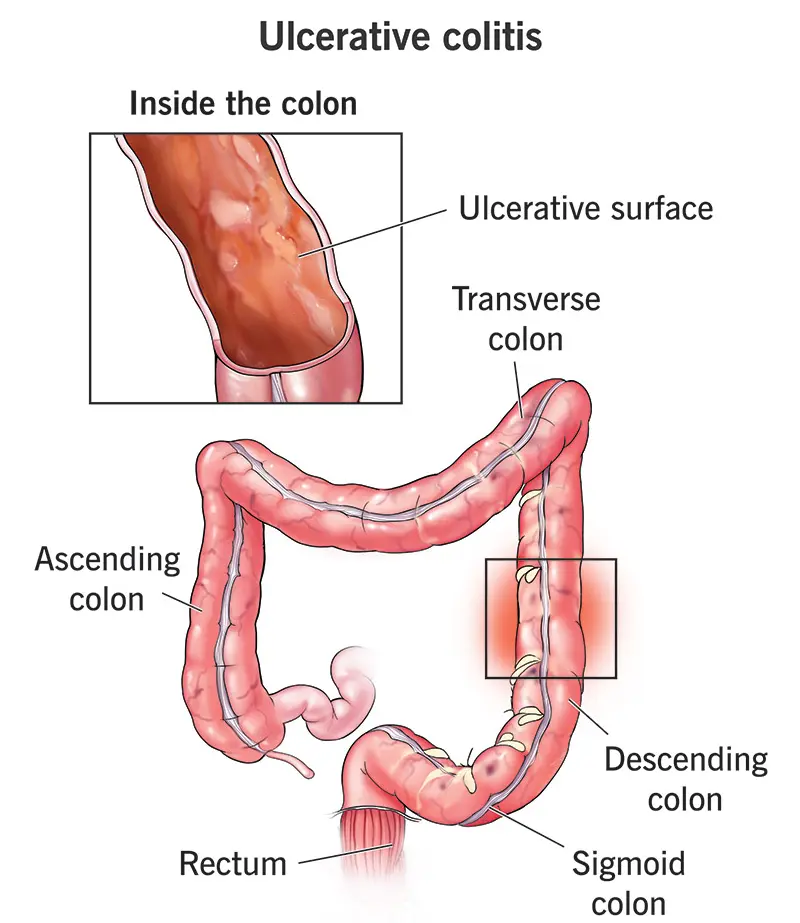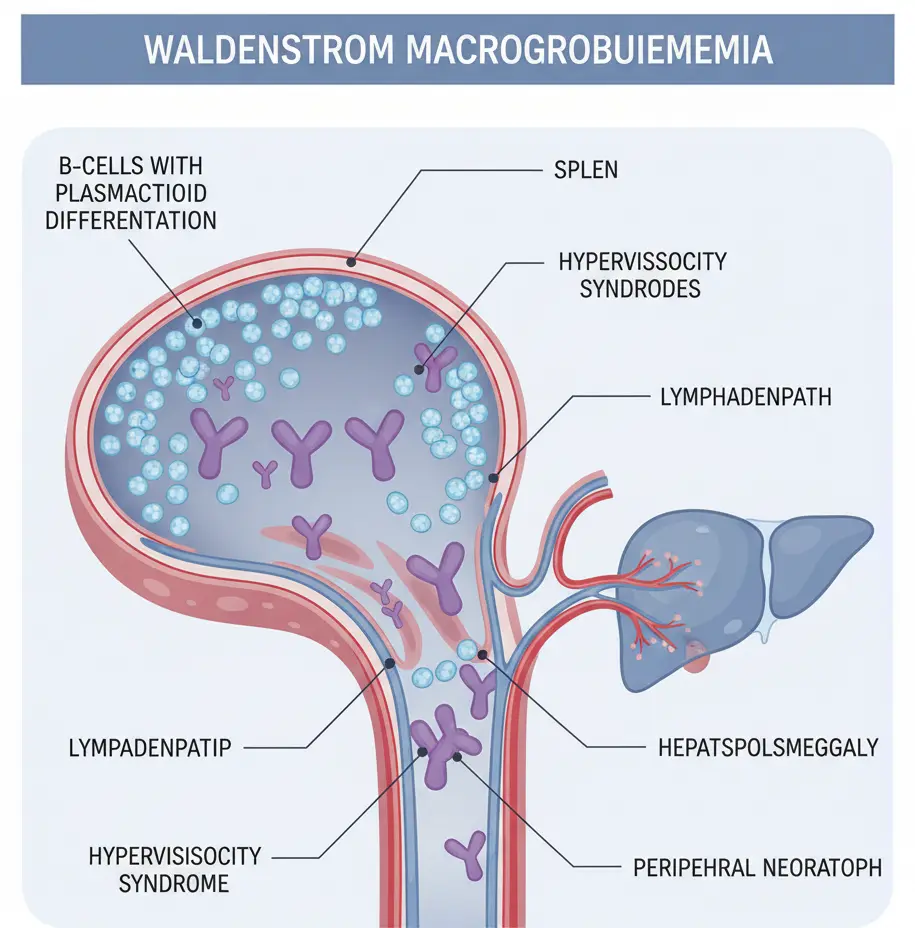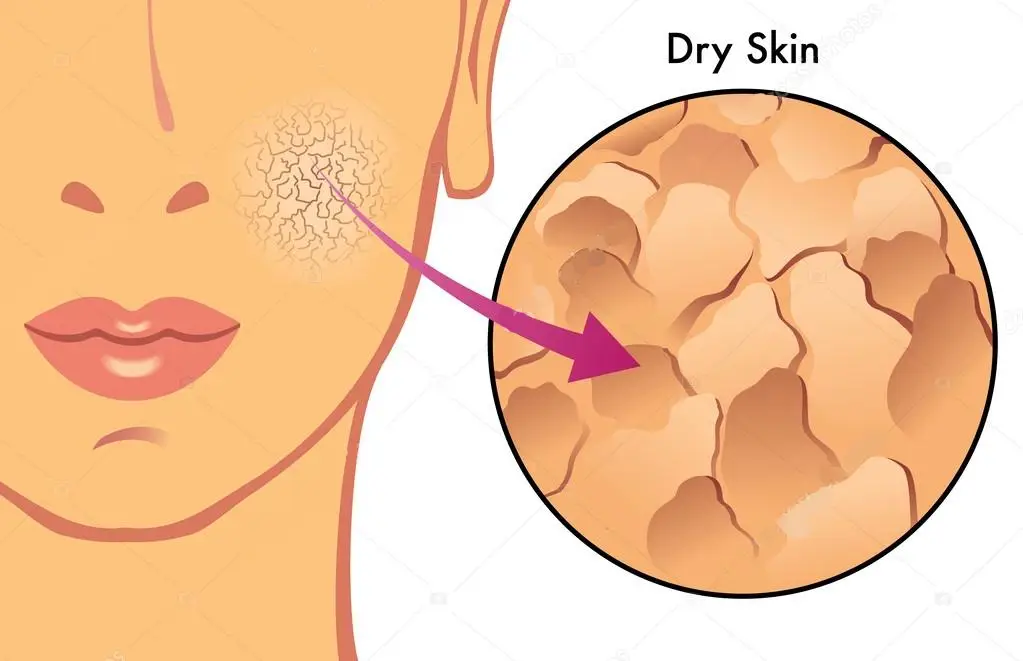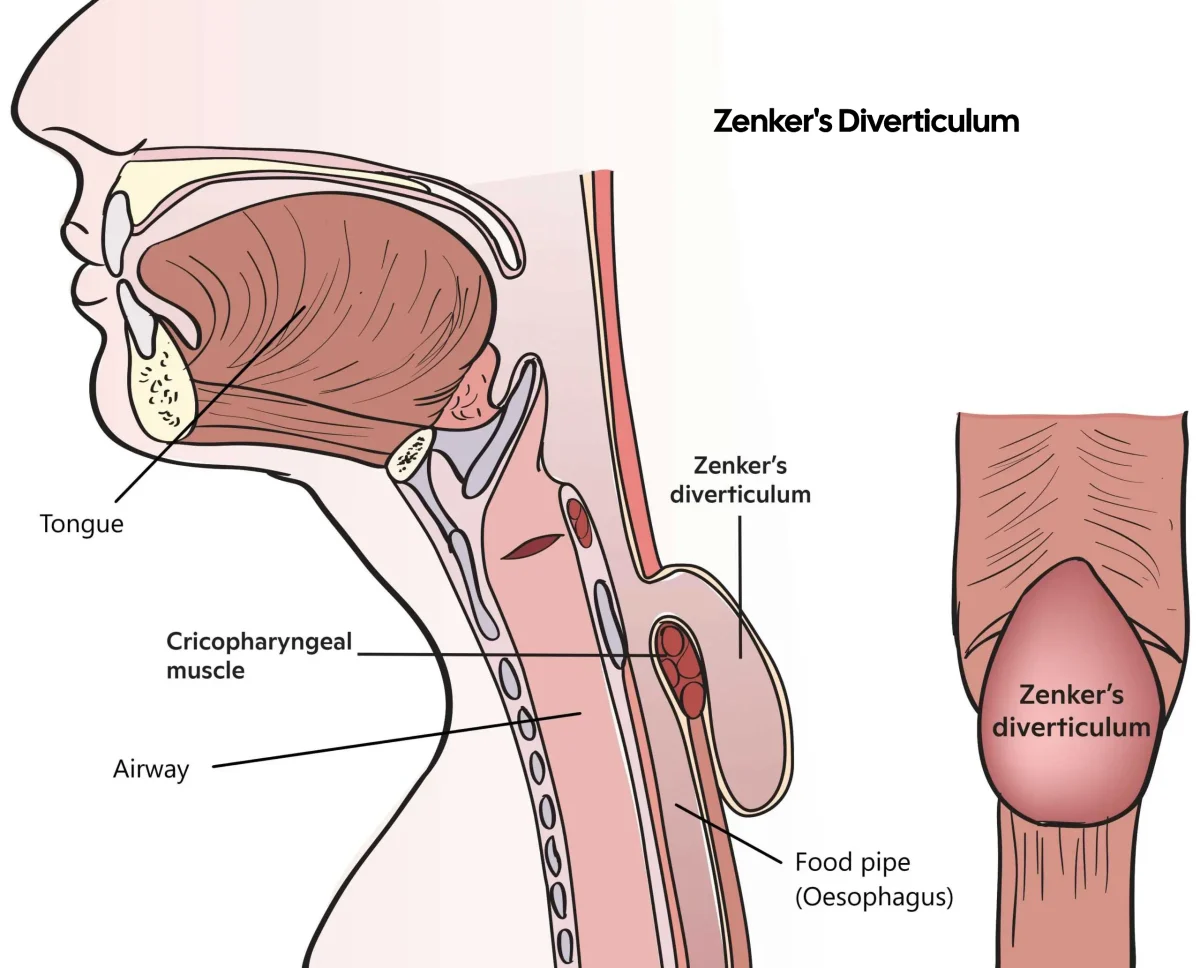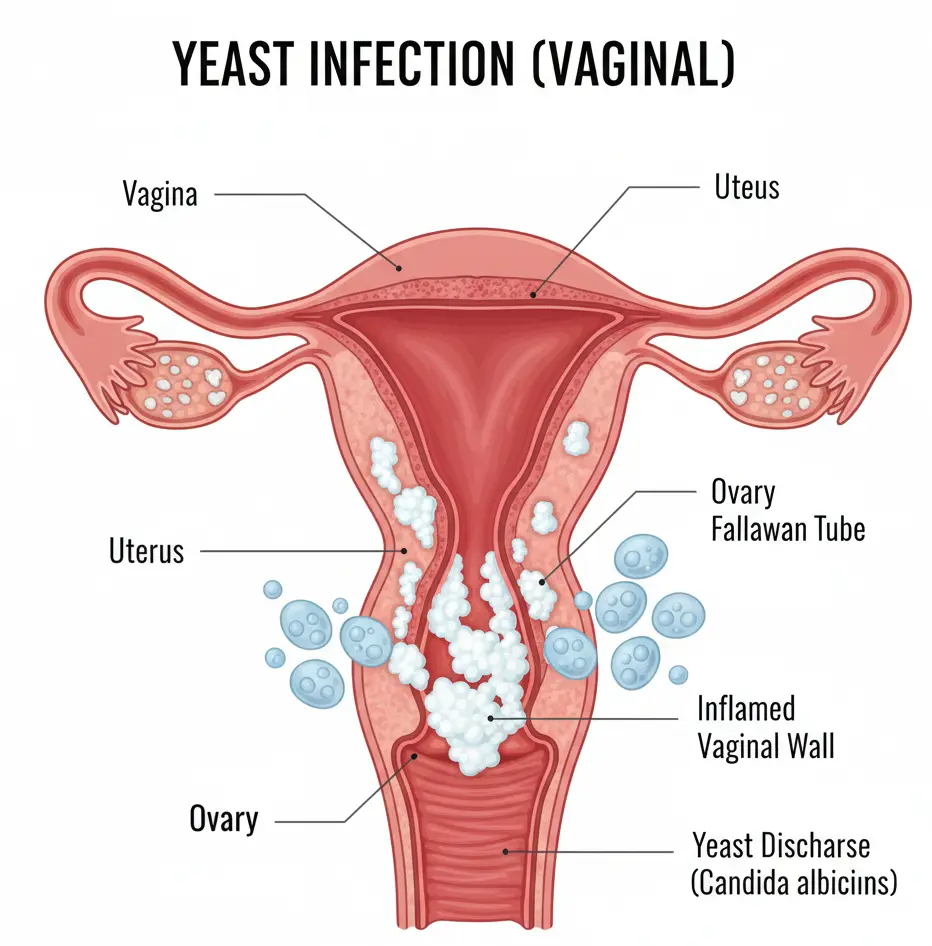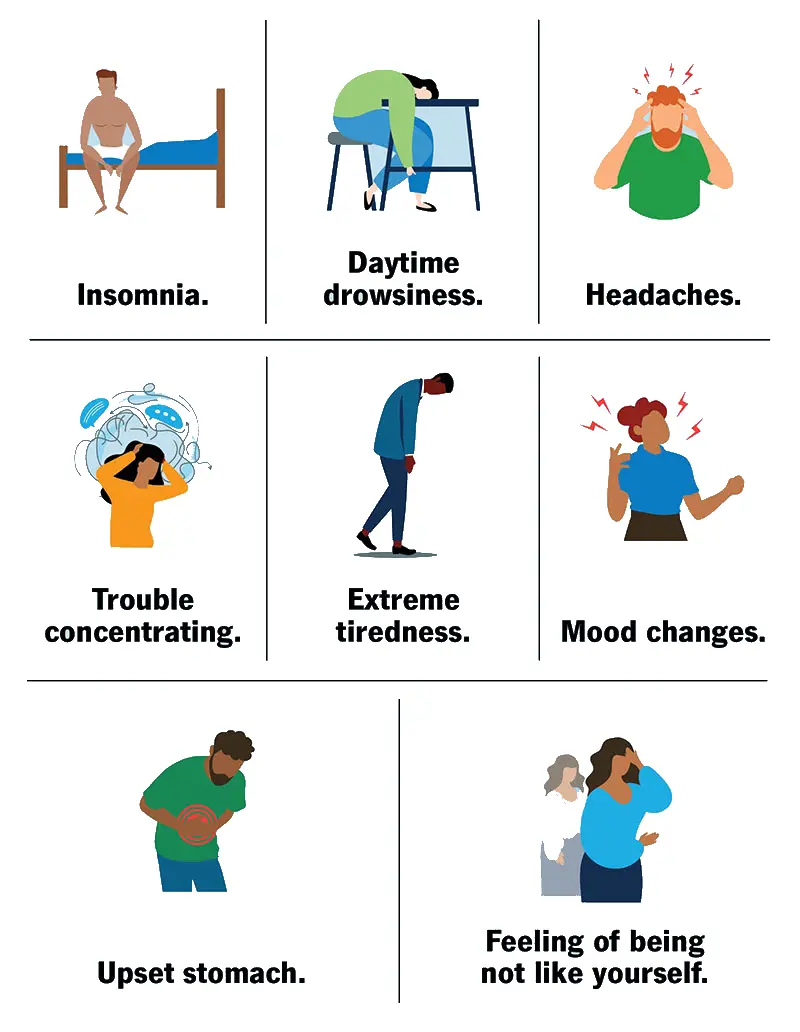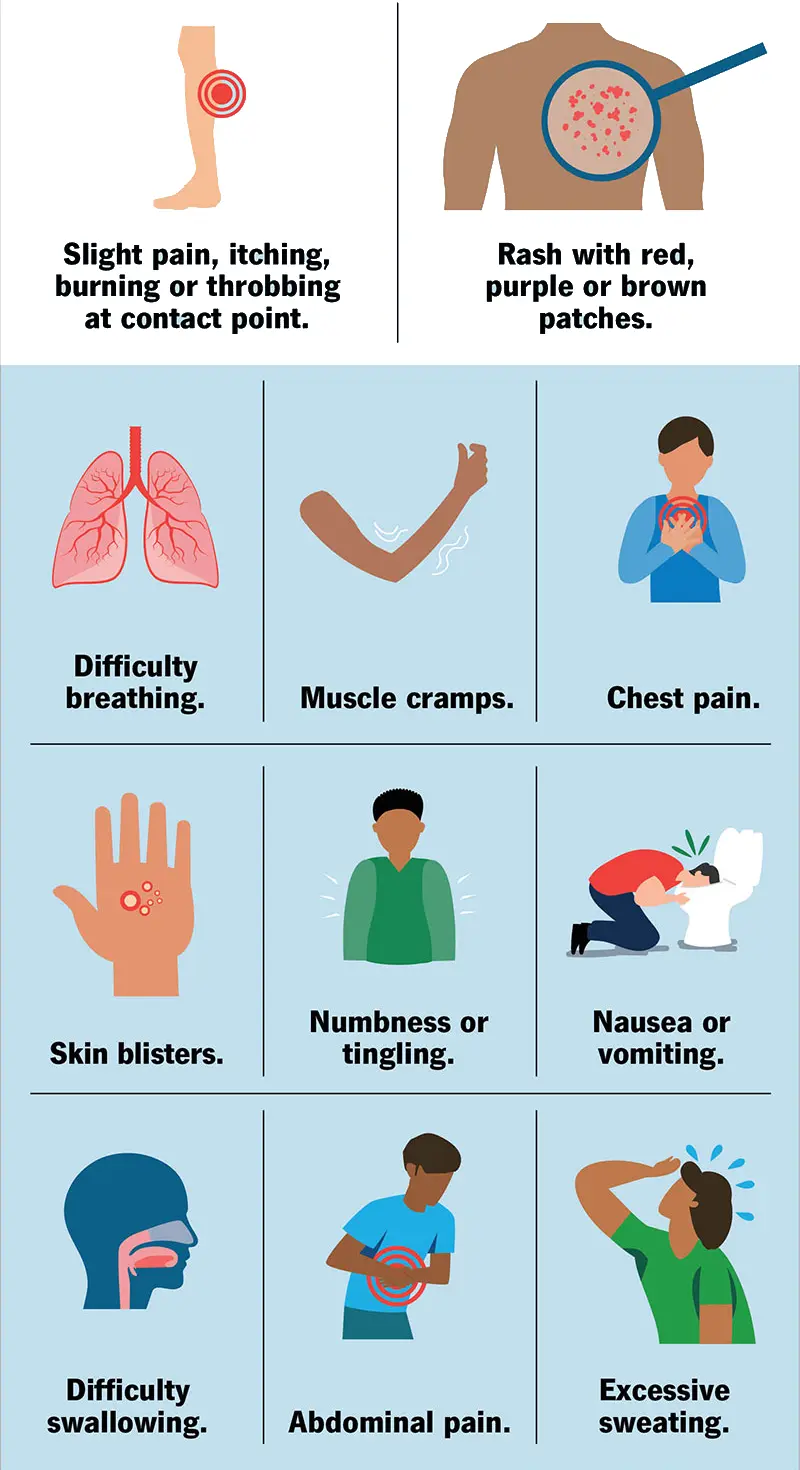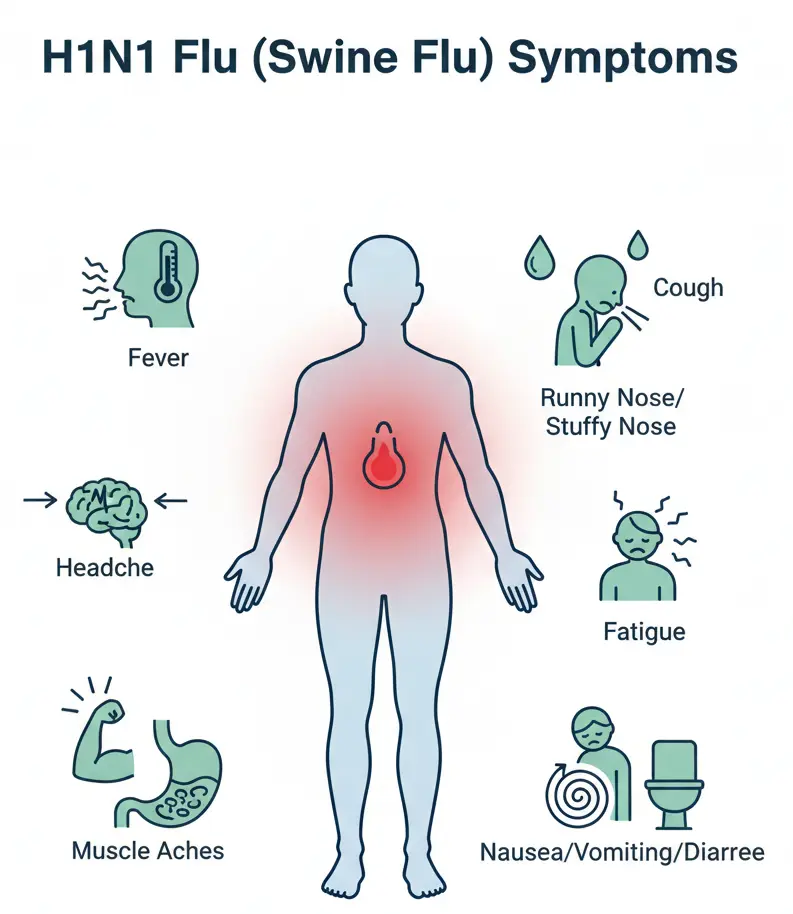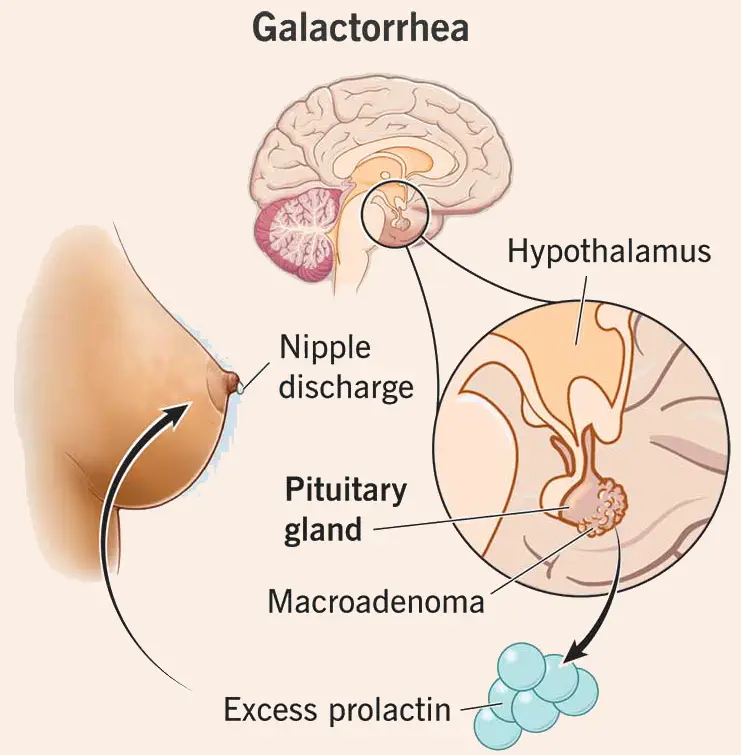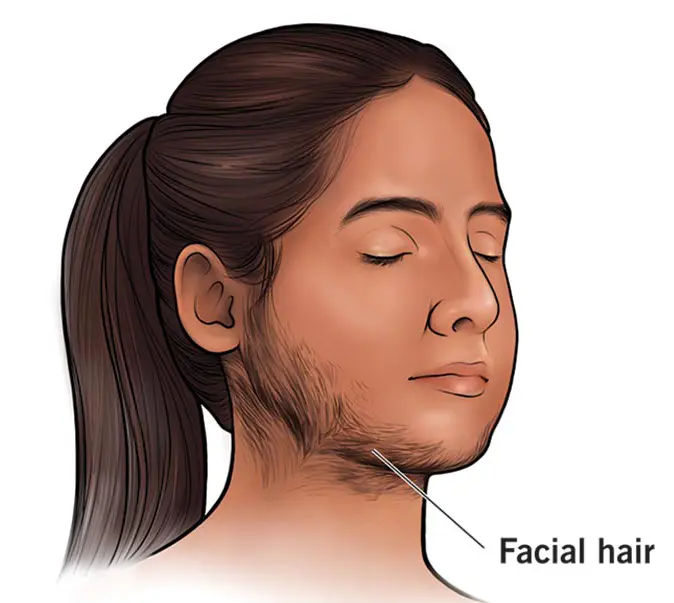Ulcerative colitis is a chronic inflammatory bowel disease that causes inflammation and ulcers in the inner lining of the large intestine (colon) and rectum. The condition usually develops gradually and can have periods of flare-ups followed by remission. Ulcerative colitis affects digestive function and can significantly impact quality of life, but with proper management, many people are able to control …
Waldenstrom Macroglobulinemia
Waldenström macroglobulinemia (WM) is a rare type of non-Hodgkin lymphoma characterized by the overproduction of abnormal white blood cells called B lymphocytes. These cells produce excessive amounts of an abnormal protein known as immunoglobulin M (IgM), which can thicken the blood and interfere with normal blood flow. WM progresses slowly and is considered a chronic condition. Symptoms often develop gradually, …
Dry Skin
Dry skin, also known as xerosis, is a common condition in which the skin lacks adequate moisture, leading to roughness, flaking, and irritation. It can affect people of all ages and may be temporary or chronic. Dry skin often worsens during cold or dry weather and can be influenced by lifestyle habits, environmental exposure, or underlying medical conditions. Symptoms Symptoms …
Zenker’s Diverticulum
Zenker’s diverticulum is a condition in which a pouch forms in the upper part of the esophagus, just above the muscle that opens to allow food to pass into the stomach. The esophagus is the tube that carries food from the mouth to the stomach. This pouch develops when pressure builds up during swallowing, causing the inner lining of the …
Yeast Infection (Vaginal)
A yeast infection is a common fungal infection caused by an overgrowth of yeast, most often Candida albicans. Yeast normally lives on the skin and inside the body in small amounts without causing harm. When the balance of microorganisms is disrupted, yeast can multiply and lead to infection. Yeast infections most commonly affect the vagina, mouth, skin folds, and diaper …
Jet Lag Disorder
Jet lag disorder is a temporary sleep condition that occurs when rapid travel across multiple time zones disrupts the body’s internal clock, also known as the circadian rhythm. This misalignment between the internal clock and the local time at the destination affects sleep, alertness, digestion, and overall well-being. Jet lag disorder is more likely when traveling long distances by air, …
Jellyfish Stings
Jellyfish stings occur when a person comes into contact with the tentacles of a jellyfish, which contain tiny stinging cells called nematocysts. These cells release venom that can cause pain, skin irritation, and, in some cases, more serious systemic reactions. Jellyfish stings are common in coastal waters worldwide and vary in severity depending on the species, amount of contact, and …
H1N1 Flu (Swine Flu)
H1N1 flu, commonly known as swine flu, is a contagious respiratory illness caused by the influenza A (H1N1) virus. It spreads from person to person in a manner similar to seasonal influenza, primarily through respiratory droplets released when an infected person coughs, sneezes, or talks. While many cases are mild, H1N1 flu can cause severe illness, especially in high-risk individuals, …
Galactorrhea
Galactorrhea is a condition characterized by the unexpected flow of milk or milk-like discharge from the nipples in individuals who are not breastfeeding or pregnant. It can occur in women, men, and rarely in children. Galactorrhea itself is not a disease but a symptom that often indicates an underlying hormonal imbalance, most commonly involving elevated levels of prolactin, the hormone …
Hirsutism
Hirsutism is a condition in which women develop excessive, coarse, dark hair in areas where men typically grow hair, such as the face, chest, back, and abdomen. It occurs due to increased levels of male hormones called androgens or increased sensitivity of hair follicles to these hormones. Hirsutism is not a disease itself but a sign of an underlying hormonal …
